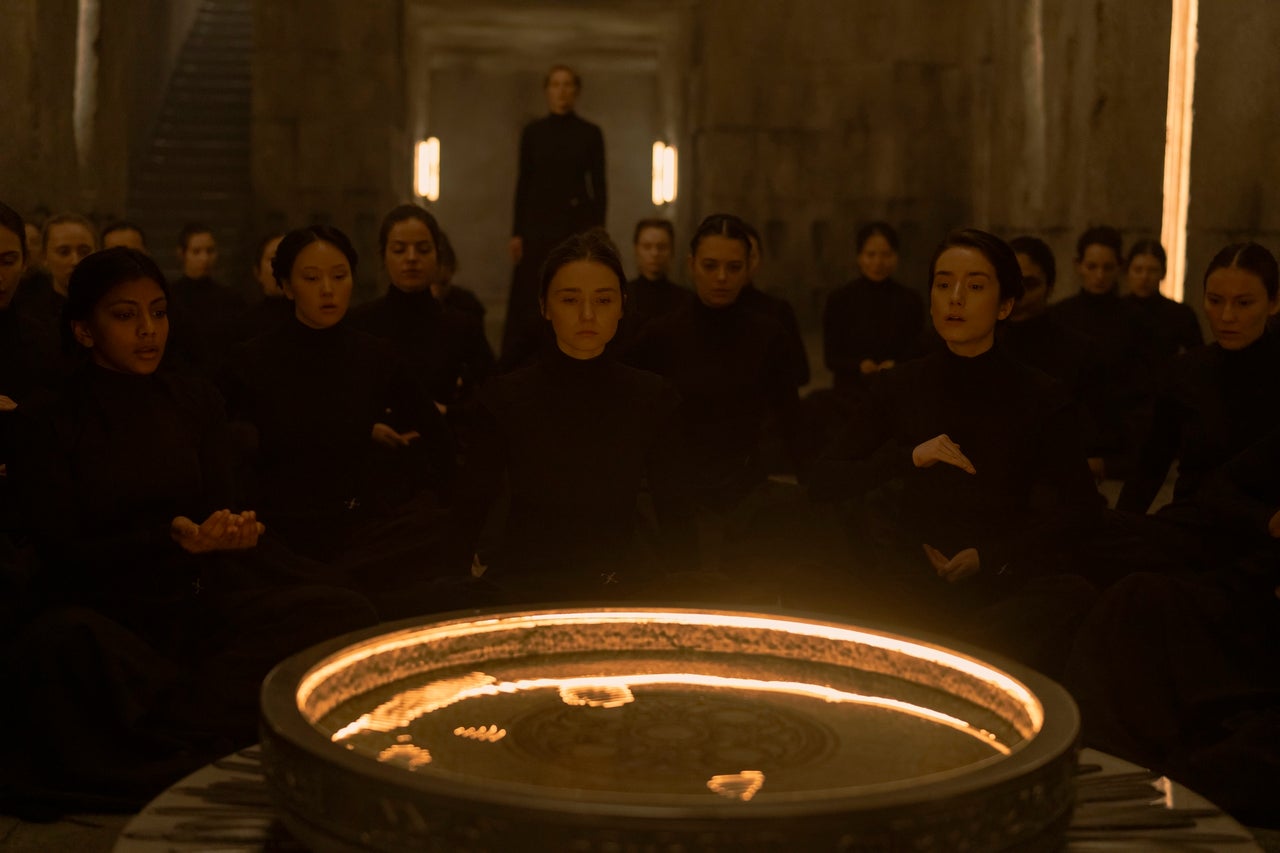The following review includes spoilers for the inaugural episode of Dune: Prophecy, titled “The Hidden Hand.” The challenges faced by “The Hidden Hand” appear daunting. The debut of Dune: Prophecy is tasked with establishing a vast ensemble of characters, detailing their relationships and conflicts, all while introducing viewers to a previously unexplored period within the Dune universe—one that significantly diverges from the interplanetary Imperium depicted in Denis Villeneuve’s Dune and Dune: Part II.
Moreover, “The Hidden Hand” must evoke the essence of Villeneuve’s films despite operating on a considerably smaller budget. Therefore, it is quite impressive how much the episode manages to achieve within its slightly over one-hour runtime, even if it ultimately falls short of complete success.
While “The Hidden Hand” excels at enriching the lore of the Dune universe, it struggles with narrative coherence. I’m generally not a fan of voiceovers, but the recounting of the Butlerian Jihad and the involvement of the Atreides and Harkonnens provides just the right amount of lore to engage fans eager to delve deeper into the saga (though I still feel a bit miffed that it was referred to as “the wars against the thinking machines”).
It’s intriguing to observe a universe recently liberated from the control of thinking machines, with individuals quickly reverting to a sense of trust in them. However, when the premiere explores the Emperor’s political challenges with House Richese, it fails to capture interest. This subplot feels more akin to the Trade Federations of the Star Wars prequels than the vast sci-fi narrative we cherish, hindering the episode’s momentum.
That said, not every aspect of the current storyline falters. The internal conflict within the Sisterhood regarding their future direction, along with the ominous presence of Tiran-Arafael and the implications of Desmond Hart (Travis Fimmel), provide substantial material to engage with. The casting of Emily Watson and Olivia Williams as Valya and Tula Harkonnen enhances the experience, as they consistently elevate the sometimes lackluster dialogue.
Conversely, Jessica Barden and Emma Canning, portraying younger versions of Valya and Tula, often come across as stiff and awkward, likely due to the clunky script. Nevertheless, the intriguing elements surrounding Tiran-Arafael, the Harkonnen sisters’ backstories, and Sister Lila’s lineage manage to keep “The Hidden Hand” from becoming entirely mundane, though it undeniably feels uneven.
There is also a noticeable imbalance in the premiere’s overall presentation. With the budget of a premium cable series rather than a major studio blockbuster, Dune: Prophecy strives to emulate the standards set by Dune and Dune: Part II, but frequently comes off as derivative. “The Hidden Hand” experiences its highs and lows, with its CGI often faltering when compared to its cinematic counterparts, while the costumes and sets feel more like mere props rather than contributing to a cohesive, immersive fictional world. Occasionally, moments of brilliance emerge—such as Kasha’s nightmare sequence and the disturbing burning of young Master Richese—but the premiere never fully integrates into the Dune universe.
VERDICT: “The Hidden Hand” is burdened with significant expectations and manages to fulfill them adequately. The premiere of Dune: Prophecy shines brightest when it delves into the lore of the Sisterhood and the broader universe, yet it loses some of its luster on a more detailed level. The allure of unfolding mysteries will keep me invested, but if the Dune series fails to match the visual and auditory splendor of the films, the resolutions to those mysteries will need to be exceptionally rewarding.
DUNE: PROPHECY SERIES PREMIERE REVIEW – “THE HIDDEN HAND”
The first episode of Dune: Prophecy establishes a solid foundation for the series, addressing an extensive list of premiere tasks while teasing future mysteries. However, nothing distinctly stands out as the series’ main attraction, aside from its ties to the larger Dune universe.



